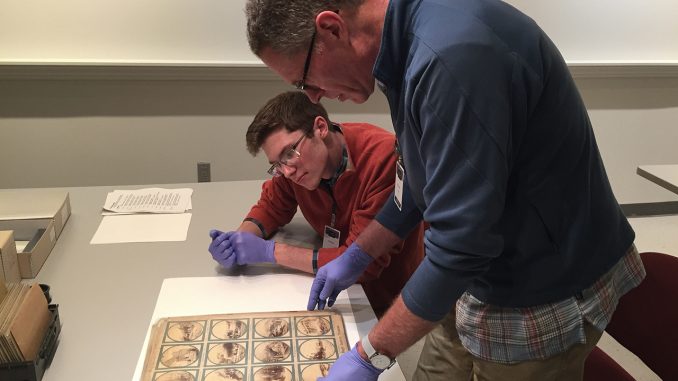
Byron Wolfe has dedicated his life to photographing U.S. landscapes and teaching aspiring photographers.
In never occurred to him that one day his photography skills would help solve a murder case.
In 2015, Wolfe, a professor and program head of photography at Tyler School of Art and Architecture, was contacted by Pennsylvania State Trooper Andrew Martin to assist in enhancing the crime scene photos of a 30-year-old cold homicide case.
“It was out of the blue,” Wolfe said. “The detective said he had some film that was in terrible shape and wondered if I could work on it with him.”
Wolfe enhanced photos from the murder of Denise Sharon Kulb, 27, who died in 1991.
With Wolfe’s work police arrested Kulb’s then-boyfriend Theodore Dill Donahue for her murder on Sept. 3.
Kulb’s body was found in a remote area of Delaware County, only dressed in a sweater, with the rest of her clothes piled on top of her body, which included one yellow sock.
The crime scene photos were of poor, grainy quality, making it difficult for investigators to draw conclusions and piece together evidence.
“You couldn’t see much of anything, and that was pretty common in the ‘90s,” Wolfe said. “They made quick reference photographs, and the film had probably been processed in a drugstore.”
Wolfe had to improve the quality of the 35mm negatives to be more coherent. He used a high-resolution scanner.
Though Wolfe’s photo technique wasn’t new technology, his equipment was much more advanced than what’s typically used by police departments, he said.
“I made really high-resolution scans, and I did what I could to compensate for the poor exposures,” Wolfe said. “And they could actually see what was in the pictures.”
Wolfe’s restoration of the photos proved to be an imperative component in solving the case, said Anthony Voci, chief of the homicide unit at the District Attorney’s Office of Philadelphia.
Investigators concluded from the photos that the yellow sock found on Kulb’s body was an exact match to a yellow sock that was found in Donahue’s apartment, he added.
Wolfe’s assistance, coupled with Donahue’s frequent changes in his alibi, was enough to warrant an arrest, Voci said.
When Martin reopened the case in 2015, Donahue had presented authorities with a third version of his alibi. This time he claimed that the second version of events, in which he claimed he and Kulb were robbed, was a lie, and gave a different story, Voci said.
“That’s something that we didn’t have when the case got set aside — the third version of the suspect,” Voci added. “There’s no method to this madness, there’s no set time frame, and things can come up.”
Wolfe’s assistance in the investigation was “vitally important” in solving the case and bringing justice to Kulb’s family, wrote Philadelphia District Attorney Larry Krasner in a statement to The Temple News.
“She was a daughter, a sister, a mother, a friend,” Krasner wrote. “She deserved far better than to be killed and left in a location unknown to those who mourned her.”
Wolfe said he credits the detectives for their investigative work. He added he’s willing to be of assistance again if the opportunity arises because as a professor, he believes it’s a part of his civic duty.
“Part of what a university is for is to be a public service,” Wolfe said. “It’s interesting how this skill set that I have, which is usually employed or deployed for creative purposes, have actually done something really practical.”



Be the first to comment